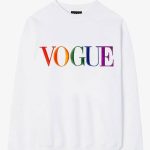Sustainable fashion fair Neonyt announced the winning products and capsule collections of the Green Product Award Fashion on 22nd July 2023. The subcategories were clothing, bags, accessories and shoes as well as editor’s choice and the public vote.
A jury selected a total of seven winning products from 40 nominations, which came from Germany, Italy, Israel, Poland, the Netherlands, Spain, Switzerland, UK and USA. The editorial team and the public with a total of 8,000 votes each determined three and two additional winners, respectively.
The jury consisted of Belvis Soler from Luxiders Magazine, Rosan van Boven, co-founder of Fabriek Fris and Anderlus, Nat-2 and Thies CEO Sebastian Thies, Petra Schmatz, editor-in-chief of Sous & Green Lifestyle and Ulrike Kähler, managing director of Igedo Exhibitions.
Clothing
In the clothing category, three products stood out: TômTex from US-based Tomtex Co. is a bio-based and high-performance material that can mimic fabrics such as leather, pleather, suede, latex, vinyl and many others. It uses two key ingredients from food waste: shells and mushrooms. “There is no toxic tanning or dying process, no petrochemicals or plastics, and no harm to the planet or people,” confirms TomTex.
Barcelona-based brand Sylvia Calvo BCN’s Re-Yut-Cel is a regenerated natural yarn made mainly from recycled jute coffee sacks and waste fibres from cotton spinning, which can be used to make fabrics for the fashion and interiors industries. “Using this regenerated yarn we reduce the use of new natural resources and reducing CO2-eq generated, use of water and support local economy and industry at the same time we reduce waste and pollution,” says the brand.
The Bio-Invasive Library was developed by bio-fashion and upcycling designer Xue Chen from the University of Arts London. The Bio-Invasive Library is a sustainable solution that combines invasive plants and fashion technology. By using invasive plants as raw materials for fibres and dyes, it aims to counteract the loss of biodiversity and promote the ethical treatment of animals. The project focuses on waste-free dyeing and technical production processes, using surplus textiles to develop additional bio-invasive materials. “Innovative technologies such as ‘implanting,’ ‘felting,’ and ‘spinning’ are employed to create new textiles, offering fashion designers a library of sustainable options,” explains Xue Chen on the GPA website.
Accessoires and shoes
In accessories and footwear, Swiss bag brand Freitag impressed with its “F385 Circ Case” recycled ski recyclable protective cover for the iPhone made from worn-out ski boots and the sustainable modular eyewear concept Unfoldable by Israeli designer Adi Abramov of Shenkar.
The glasses are made from recycled stereolithography (SLA) materials that can be reused and recycled. “The minimalist design isn’t just aesthetic, but strategically crafted to simplify manufacturing processes, making it as efficient as it is eco-friendly,” explains Abramov.
Bags
In the bag category, two German products stood out: The plastic-free lifestyle backpack 4elements by Eoto and the vegan everyday backpack Inki by Kaala, which even offers space for a laptop and yoga mat, but can also be folded to normal daypack size.
The 4elements backpack is largely made of Manila Fibre – a material combination of 76 percent cotton and 24 percent fibres from the abacá plant, which also has a water-repellent effect. All other individual parts such as fasteners, buckles and zips are made of metal.
Editor’s choice
There were also three editors’ favourites: Berlin-based brand Luckynelly’s Amy handbag made from Berriestex, an innovative vegan, plastic-free material made from overripe strawberries; German fashion brand Wunderwerk’s Collien Denim Eco Bleach jeans; and Dutch lingerie brand Hunkemöller’s Wies recycled underwear line.
“The lace is dyed with hues from nature, white from acorns and pink from lac. With this collection, we challenged ourselves to redesign our bra by using different components made from recycled materials. The result is our popular padded bra, which is made from 52 percent recycled materials,” says Hunkemöller.
Public vote
The public vote determined two bags as the most popular products: the modular Arlecchina Bag by Italian designer Emma Maiorino that can be reconfigured as desired and creates no waste, and Plus_Zero by Polish brand Pluskalmt, which is made from recycled leather by local artisans.
Nominees
The jury, the editorial team and the public did not have an easy task, because this year’s products all stood out for their creativity and innovation. For example, the Spanish Institute for Advanced Architecture of Catalonia presented the Purhyphae project, which uses mycelium for the biodegradation of textile waste. Old clothes, for example, could serve as raw material for fungi to grow.
“Fungi are amazing species that can feed on a variety of substrates, including toxic ones,” explains bioengineer and biochemist Annah-Ololade Sangosanya.
Likewise, there was Coat-19, a puffer jacket filled with used face masks by two Icelandic designers, and a hemp fur coat by Devo Home made from plant-based hemp that is vegan, antibacterial and biodegradable. It was developed by Ukrainian designer Oksana Devoe.



